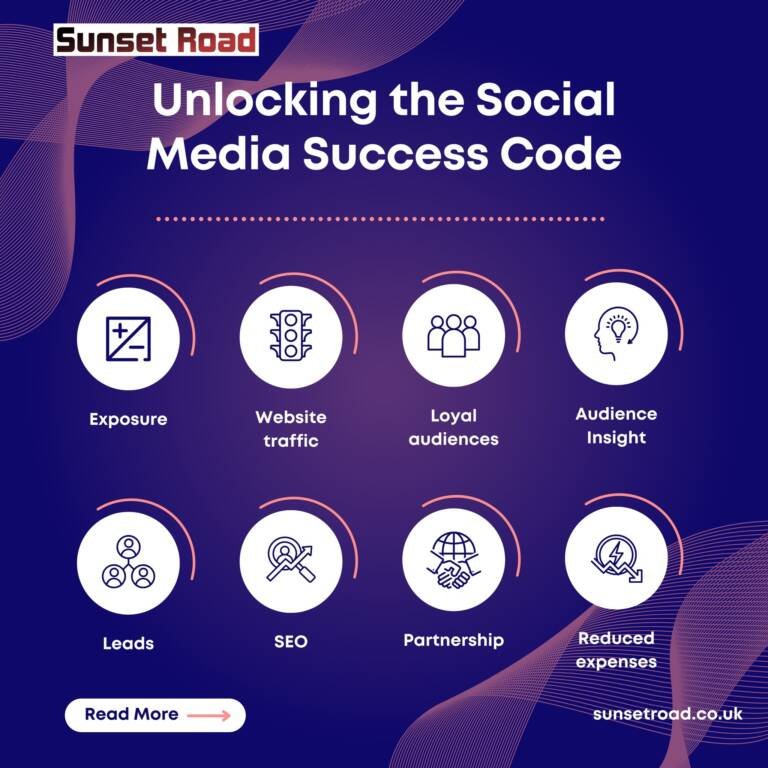The Rise of Video Content: Why UK Businesses Should Focus on Video Marketing

In recent years, video content has taken the digital world by storm, becoming one of the most engaging and effective tools for marketing. For UK businesses, video marketing presents an unparalleled opportunity to capture audience attention, increase brand visibility, and drive customer engagement. This rise in popularity is not just a passing trend; it is rooted in evolving consumer behavior, advances in technology, and the growing appetite for digestible and dynamic content.
The Power of Video in Consumer Behavior
One of the main reasons UK businesses should embrace video marketing is its undeniable impact on consumer behavior. Studies show that users are more likely to engage with video content than text-based content, with over 80% of people reporting that they prefer watching videos to accessing information via reading. This preference is especially evident on platforms like Instagram, YouTube, and TikTok, where short, visually appealing videos drive significant engagement. For example, UK-based fashion retailer ASOS has successfully integrated video into its social media strategy by sharing styling tutorials and behind-the-scenes content. This approach humanizes the brand and helps customers make more informed purchasing decisions, ultimately boosting conversions.
Enhanced Brand Awareness Through Storytelling
Video marketing allows businesses to tell their brand story more creatively and authentically. In today’s competitive marketplace, UK businesses must differentiate themselves, and video content provides an ideal medium to connect emotionally with their target audience. A good example is John Lewis, the British retailer renowned for its emotionally charged Christmas advertisements. Their video campaigns consistently generate millions of views on social media, reinforcing their brand message and establishing a strong connection with their audience. Through storytelling, UK businesses can create lasting impressions, enhance brand recall, and build stronger customer relationships.
Increased Engagement on Social Media Platforms
Social media platforms like Facebook, Instagram, LinkedIn, and Twitter are all pushing video content to the forefront of their algorithms, favoring it over static images or text posts. For UK businesses, this means that incorporating video into their marketing strategy can significantly increase visibility and engagement. Instagram Stories and Reels, for instance, are widely used by brands to share product demos, customer testimonials, and promotional content. Gymshark, a UK-based fitness apparel brand, has mastered the use of Instagram Reels to showcase workout tutorials and influencer collaborations, which has contributed to its massive following. The brand’s creative use of video has helped Gymshark become a household name in the fitness industry while maintaining a strong community of loyal customers.
Video as a Conversion Tool
Beyond engagement, video marketing has proven to be an effective tool for driving conversions. Whether it’s through explainer videos, product demos, or customer testimonials, video content helps potential customers better understand a product or service, leading to higher purchase intent. According to research, 74% of people who watched a product video subsequently bought the product. For example, AO.com, a UK-based online electronics retailer, uses short video reviews on their website and social media channels to help customers make informed purchasing decisions. By showing how the products work in real life, they reduce uncertainty, increase trust, and ultimately drive more sales. UK businesses in all sectors can replicate this strategy by producing high-quality, informative videos that demonstrate their offerings’ unique value.
Cost-Effectiveness and Accessibility
While the production of high-quality video content may seem expensive at first, video marketing has become more accessible and affordable than ever. With the advancements in smartphone cameras, editing software, and live-streaming capabilities, businesses no longer need a big budget to create compelling videos. Even small UK businesses can take advantage of video marketing by using platforms like TikTok, where raw and authentic content often outperforms heavily produced videos. For instance, small independent cafes in London have gone viral by simply using their phones to record daily operations, customer interactions, and product launches. This type of content resonates with audiences who appreciate authenticity, making video a cost-effective way for businesses to grow their reach.
SEO Benefits of Video Content
Another compelling reason UK businesses should focus on video marketing is its impact on search engine optimization (SEO). Search engines like Google prioritize websites with video content, which leads to higher rankings and better visibility. Embedding videos on landing pages or blog posts can improve user experience by keeping visitors on the site longer. This, in turn, signals to search engines that the content is valuable, thereby improving the website’s SEO performance. A case in point is VisitBritain, the UK’s national tourism agency. By adding destination videos to their website and social media pages, they’ve not only attracted more visitors but have also improved their search engine rankings, driving organic traffic to their platforms.
Mobile-First Audience and Video
With mobile devices accounting for over half of all online video consumption globally, video marketing is crucial for businesses targeting mobile-first audiences. In the UK, this trend is no different, with many consumers accessing social media platforms and engaging with video content directly from their smartphones. A study showed that videos designed for mobile viewing, such as vertical or square formats, tend to perform better on platforms like Instagram and TikTok. For example, UK beauty brand Lush leverages mobile-friendly video content across its social media channels, sharing eco-conscious messaging and behind-the-scenes production processes. This not only engages their mobile-first audience but also reinforces their brand values, encouraging customer loyalty.
Catering to Different Audiences with Video
Video content also enables businesses to cater to different audience preferences. Some customers may prefer short, snappy videos that quickly convey a message, while others may appreciate longer, more in-depth content. For example, a UK-based consultancy might create quick one-minute tip videos for their LinkedIn audience while producing longer, more detailed webinars or case study videos for their website. By offering a mix of video lengths and styles, businesses can appeal to a broader range of customers, ensuring that their content is relevant and engaging to all segments of their target audience.
Staying Competitive in a Digital-First World
Finally, UK businesses need to adopt video marketing to stay competitive in today’s digital-first world. As more businesses recognize the power of video, those that fail to integrate it into their marketing strategy risk being left behind. A great example is the rise of digital banking platforms like Monzo, which use video content to explain their services, provide updates, and engage with their user base. Their use of video has helped them differentiate from traditional banks, positioning them as a forward-thinking and customer-centric brand.
The Rise of Live Video and Interactive Content
Live video is another growing trend that UK businesses should capitalize on. Live streaming enables real-time interaction with viewers, creating a sense of immediacy and connection that pre-recorded videos often lack. Platforms like Instagram Live, YouTube Live, and LinkedIn Live are ideal for hosting Q&A sessions, product launches, webinars, or virtual events. For example, UK-based fast-fashion brand PrettyLittleThing frequently hosts live streams on Instagram, where they unveil new collections and offer exclusive discounts to viewers. The interactive nature of live video allows businesses to engage directly with their audience, answer questions, and gather valuable feedback—all in real-time.
Video as a Versatile Medium
One of the key advantages of video content is its versatility. Videos can be repurposed across various platforms and formats, maximizing their reach and impact. For instance, a single product demo video can be uploaded to YouTube, shared as a Facebook post, trimmed down to fit Instagram Stories, or even used in email marketing campaigns. A great example of this is Marks & Spencer’s use of video content. They often repurpose their video campaigns across different social media platforms and email newsletters to maintain a consistent brand presence. This ability to repurpose video content allows businesses to optimize their marketing efforts and achieve better results with fewer resources.
Conclusion
The rise of video content presents UK businesses with an incredible opportunity to enhance their marketing efforts, engage with their audience, and drive conversions. From storytelling and SEO benefits to the versatility of the medium and its cost-effectiveness, video marketing has become an essential tool for businesses of all sizes. As consumer behavior continues to evolve and the demand for video content grows, UK businesses that prioritize video marketing will be well-positioned to thrive in the competitive digital landscape.











